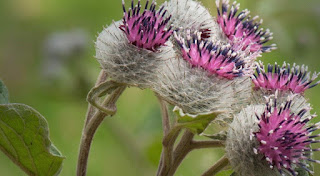Juniper can boast valuable
healing properties, proving to be an effective diuretic, detoxifying and natural antirheumatic. In its various forms, from berries to essential oil, Juniper is to be considered a natural detoxifying remedy, useful for the treatment of numerous ailments.
Classified with the Celtic
name of (Juniperus), the term derives from its defined very acrid flavor, this incredible plant belongs to the Cupressaceae
family and is fully part of the arboreal panorama of the Mediterranean area. Juniper is a spontaneous shrub, sometimes very low and therefore convenient for the collection of its berries which are the source of numerous active ingredients. It is a very resistant plant with few needs for its survival and it adapts very well to mountainous soils, often poor in water.
Juniper in history
Historically Juniper is already mentioned in the Egyptian papyri of over 4,000 years ago, where it was called (kyphi) and was used as incense. Already in such distant times it was used to combat headaches or to treat stomach pain. As has often happened in the history of medicine, the Arabs rediscovered it in the tenth century and we find it very widespread in the monasteries of the time to prepare liqueurs obtained by hydroalcoholic extraction.
It is surprising to discover that from the juniper berries the famous distillate known as gin is produced which initially had a therapeutic function but then, due to the fact that it easily induced a state of drunkenness, it was prohibited in Germany. This limitation was overcome by adding lavender, anise, gentian and other ingredients to gin to create the therapeutic juniper better known as (water against the plague).
Juniper berries are very versatile and can be used in the form of essential oil or mother tincture, or as a herbal tea or even as a powder to obtain the various advantages they offer to those who use them in a correct and controlled way.
Juniper essential oil is used for a variety of problems, thanks to the presence of terpenic molecules that include very important monoterpenes. In the juniper essential oil there are also oxygenated terpenoids. Juniper berries are also sources of proanthocyanidins, flavonoids and tannins.
Diuretic and detoxifying
Juniper, in its various forms, is a natural remedy useful for the treatment of numerous ailments. Under strict medical supervision, Juniper berries can be used to promote the body's diuretic functions; in the form of essential oil, Juniper has proven to be active in reducing cellulite, edema and excess water retention, as well as being useful in case of venous stasis. It must be remembered that the juniper essential oil must be avoided in pregnancy and during breastfeeding, also it is good not to use it in cases of hormone-dependent tumor forms, nephropathy or allergy to limonene. Finally, Juniper essential oil is a natural detoxifier: it acts on the lymphatic system and this action allows us to free ourselves from toxins and excess waste that have accumulated in the body.
Natural antiseptic and antirheumatic
Juniper has other important beneficial and healing properties: it is primarily considered a natural antiseptic to be used in case of diseases of the respiratory and urinary tract. Furthermore, if used in its oily form, the plant has interesting anti-rheumatic properties so much that it can be used as an oil for massaging.
Well-being for stomach and intestines
It is very important to underline that currently Juniper and its products are officially approved only to counter dyspeptic disorders and this thanks to its natural ability to eliminate the air accumulated in the stomach and intestines, also allowing to alleviate the consequent pain due to colic, as happens with the preparation based on lemon balm, thyme, mallow or ginger.
Juniper stimulates digestive functions and makes the stomach wall more toned, with a consequent increase in appetite. Just like rhubarb, if offered at the end of a particularly abundant meal, it is able to stimulate digestion and subsequent absorption of the main macronutrients.
Antiviral and antibacterial
The oil obtained from juniper berries and leaves by steam distillation is used for its antiviral and antibacterial properties. In addition, juniper-based products are considered a good source of molecules with antiseptic and antiviral activity especially against Herpes simplex.
Benefits for skin and muscles
The purifying and disinfectant action of Juniper oil is also used for skin problems, promoting the elimination of some impurities such as acne and blackheads. Its action is also detoxifying because it increases sweating and indirectly the expulsion of toxins accumulated in the body. Juniper oil for external use is also appreciated as a relaxant for the muscular system, being able to partially relieve back pain and rheumatism.
When to be avoided
Juniper and the products obtained from its berries are to be avoided in case of kidney diseases such as nephropathy, nephritis, pyelonephritis and kidney failure; in the presence of urinary infections it is good to take these products under medical supervision. Juniper should be avoided during the acute phases of renal colic and in pregnant women because its effects on the smooth muscle of the uterus could interfere and cause a miscarriage. For safety reasons, use during breastfeeding and in case of heavy menstruation should be avoided. Finally, it is good to remember that Juniper-based products are always and only used in adulthood.
Possible contraindications
In general, juniper-based treatments should not exceed four weeks because kidney pain or difficulty urinating may appear; in addition, if the intake is prolonged for too long, very odorous urine is produced. The abuse of juniper-based products can accelerate the heart rhythm and increase blood pressure and even the simple topical application of the essential oil can sometimes cause local irritation or almost allergic forms. During the use of juniper-based products, there can be minimal interference with the therapeutic plans that provide for the use of oral hypoglycaemic agents or diuretics.
Avoid homemade preparations
The homemade preparation of Juniper oil is to be carefully avoided because some of the present species are not edible, such as in the case of Juniperus sabina. In this case, the whole plant is classified as poisonous.





Comments
Post a Comment